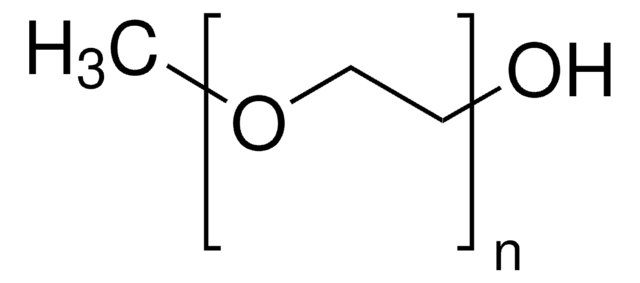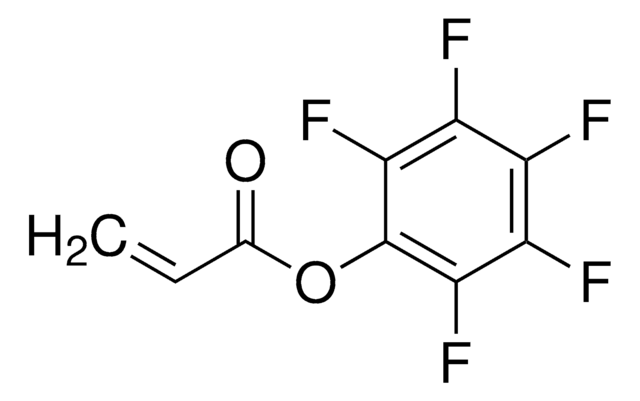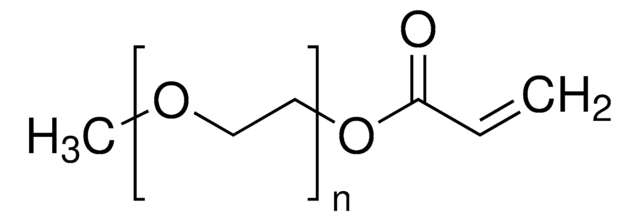732621
Poly(ethylene glycol) methyl ether
average MN 10,000, methoxy, hydroxyl
Synonym(s):
Polyethylene glycol, Methoxy poly(ethylene glycol), Polyethylene glycol monomethyl ether, mPEG
About This Item
Recommended Products
product name
Poly(ethylene glycol) methyl ether, average Mn 10,000
vapor density
>1 (vs air)
vapor pressure
0.05 mmHg ( 20 °C)
form
chunks
powder or crystals
mol wt
average Mn 10,000
mp
60-65 °C
Mw/Mn
≤1.2
Ω-end
hydroxyl
α-end
methoxy
storage temp.
−20°C
InChI
1S/C3H8O2/c1-5-3-2-4/h4H,2-3H2,1H3
InChI key
XNWFRZJHXBZDAG-UHFFFAOYSA-N
Looking for similar products? Visit Product Comparison Guide
Storage Class Code
10 - Combustible liquids
WGK
WGK 1
Flash Point(F)
415.0 °F - closed cup
Flash Point(C)
212.80 °C - closed cup
Certificates of Analysis (COA)
Search for Certificates of Analysis (COA) by entering the products Lot/Batch Number. Lot and Batch Numbers can be found on a product’s label following the words ‘Lot’ or ‘Batch’.
Already Own This Product?
Find documentation for the products that you have recently purchased in the Document Library.
Customers Also Viewed
Articles
Progress in biotechnology fields such as tissue engineering and drug delivery is accompanied by an increasing demand for diverse functional biomaterials. One class of biomaterials that has been the subject of intense research interest is hydrogels, because they closely mimic the natural environment of cells, both chemically and physically and therefore can be used as support to grow cells. This article specifically discusses poly(ethylene glycol) (PEG) hydrogels, which are good for biological applications because they do not generally elicit an immune response. PEGs offer a readily available, easy to modify polymer for widespread use in hydrogel fabrication, including 2D and 3D scaffold for tissue culture. The degradable linkages also enable a variety of applications for release of therapeutic agents.
Devising biomaterial scaffolds that are capable of recapitulating critical aspects of the complex extracellular nature of living tissues in a threedimensional (3D) fashion is a challenging requirement in the field of tissue engineering and regenerative medicine.
Our team of scientists has experience in all areas of research including Life Science, Material Science, Chemical Synthesis, Chromatography, Analytical and many others.
Contact Technical Service



